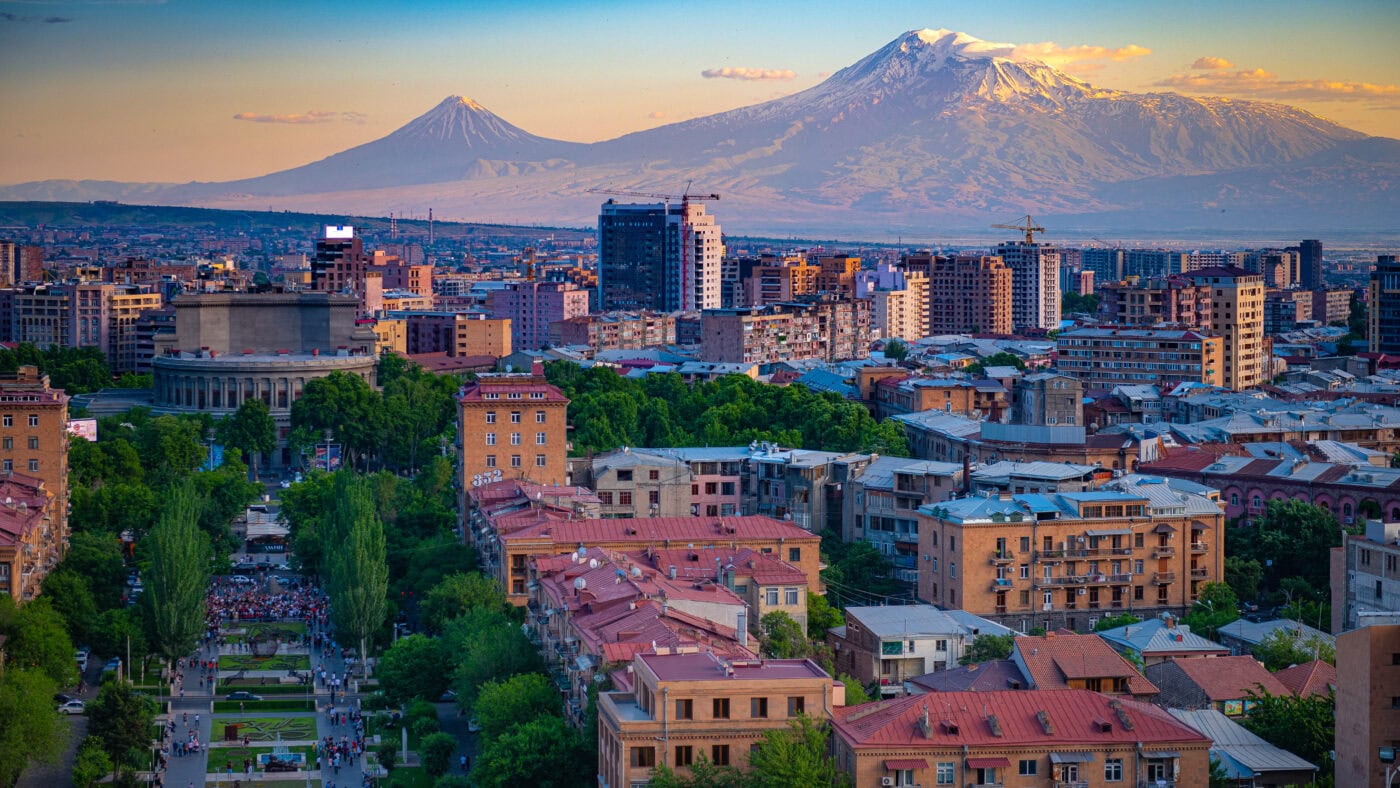The events of the past week have shown what non-state actors, supported by aggressive states, can do. The terrorist group Hayat Tahrir al-Sham and a plethora of Turkish-backed militias shocked the world by taking over Syria’s largest cities in a matter of days and forcing its dictator, Bashar al-Assad, to flee.
There is no love lost between al-Assad and his people, or the international community for that matter. His bloody crackdown on opposition protests have led to the deaths of an estimated 500,000 civilians, while millions more left the country during more intense stages of Syria’s civil war and now live in refugee camps across the region.
Yet, those who have just come to replace him are no saints either. They are a mosaic of groups, many of which were battle-hardened by fighting the US and coalition forces in Iraq and Syria until a few years ago. Some of whom may have been responsible for killings of tens of thousands of civilians and for the genocide of Yezidis and women in particular.
By any measure, this is not an ideal scenario. Any reasonable human being should squirm at the mere thought of what this could mean for millions of those who remain trapped in the country, especially the religious and ethnic minorities. Syria falling into an abyss of jihadist-control mayhem will inevitably mean more deaths and further destruction of the nation’s ancient archaeological sites.
However, if there is any bright light in all of this doom and gloom, it is the possible independence of the Kurdish-controlled areas in the North-East of Syria. The Kurds – the largest stateless people on earth – already have de jure autonomy in Iraq, in the form of Kurdistan Regional Government (KRG) and have been governing themselves as a de facto state within Syria following the breakup of the civil war there.
The world’s powers agreed to grant the Kurds that vision as part of the Treaty of Sevres in 1920, by allotting a significant portion of the South-East of what is today’s Turkey as a Kurdish autonomous state. Yet the Kurds have been abandoned then and several times since. This could be the right time to dust off that vision and go back to a more just and sustainable regional architecture.
Another nation has been left hanging by the international community. Armenia was promised an independent state, encompassing large chunks of historic Armenia, as part of the Treaty of Sevres and the US President Woodrow Wilson Arbitral Award. But the victorious allies allowed Turkey’s Ataturk and Soviet Russia’s Lenin to partition Armenia following an occupation by the Red Army in late 1920. Soon after that, the Western world forgot about its commitments to Armenia as it got busy fighting Nazi Germany and needed the Soviet Union to help out.
Unfortunately, today a series of wars in the region have once again diverted the attention of the global community from what is taking place in Armenia. Armenia is about to be overrun by an Azerbaijan that make no secret of its territorial ambitions and calls parts of Armenia ‘Western Azerbaijan’. It attacked Armenian-controlled Nagorno-Karabakh in 2020 and forced 120,000 of its citizens to flee in 2023, both results of massive military operations.
Between 1,500-2,000 Syrian opposition fighters – the same ones that sent al-Assad packing just days ago – took part in the (Russia- and Turkey-approved) Azerbaijani aggression of 2020, where international observers documented countless human rights violations and war crimes.
The people of Armenia do not want to put up with the consequences of another episode of Azerbaijani aggression, this time in Armenia proper. The world should do all in its power to prevent the same malign actors returning to destroy what is left of the country.
However, there is an important wrinkle that the liberal elites in Western countries conveniently ignore, courtesy of Vladimir Putin’s propaganda of recent years. Armenia has a leadership that will be happy to lose the war as soon as it starts. This is what has happened since 2020, every time Azerbaijan attacked and claimed more of Armenia and Nagorno-Karabakh.
Placed in power by Russia and acquiescing to Turkey as a source for external support for him to remain in power (his domestic approval rating is in single digits, if one factors out government and security apparatus), Armenia’s Prime Minister Nikol Pashinyan has destroyed the Armenian army and its defences. Recent propaganda by the regime that defence acquisitions have been made from India and France are to be taken with a pinch of salt.
The plan that Azerbaijan has been threatening Armenia with for a while now will in all likelihood involve attacking Armenia’s capital Yerevan in a blitzkrieg. Sadly, nothing stands in the way of that in Armenia. Pashinyan will not order the remnants of his army to fight back.
Azerbaijan’s President Ilham Aliyev has undoubtedly been emboldened by the success of his rebel allies in Syria. Western powers must help ensure that his aggression is contained, to prevent Armenia from becoming another Syria.
The way to do this is to support those leaders in Armenia that would take matters into their own hands and push back against the regional bullies by effective use of strategic deterrence and defence partnership. The alternative is chaos.
Click here to subscribe to our daily briefing – the best pieces from CapX and across the web.
CapX depends on the generosity of its readers. If you value what we do, please consider making a donation.


